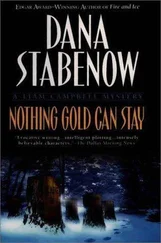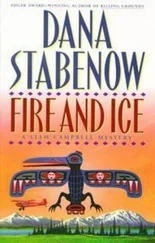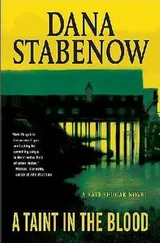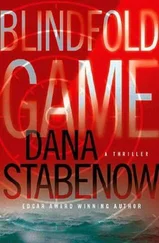Of natural treasures, old bones he could take, except whale bones, and seashells and interesting rocks. Sometimes he made little sculptures, like spirals of gray rock split with quartz. Uncle did not take feathers, not off the beach, except feathers of birds who stayed the winter. Certainly he did not take eagle feathers, not because that was against the law-he did not give a shrew’s ass about the law-but in respect for the eagle. He called the eagle “Uncle,” like him, for that is what his name meant, and the raven “Grandfather.” Even though ravens wintered, he never, ever touched their feathers. Eagle feathers he might move, binding them to the highest branch of a driftwood log, or sticking them point down into the beach.
Of seagull feathers, he never saw them, and so didn’t touch them, even though they were there. Uncle and seagulls did not get along, not since that time long ago.
–
On one of his walks he saw the boy chase seagulls. As an old man, an elder, Uncle saw it as his duty, right, privilege, and honor to correct the behavior of boys. Sometimes he hit them, although he hadn’t done so in a long time, and sometimes he yelled at them. In his old age, though, he had come to berate them through jokes and stories.
The boy ran ahead of Uncle on the low tideflats, out where the seagulls clustered in great flocks. The boy ran carefree in the fading summer, that month before the huge storm tides that would wipe the beach clean. Already big swells had rolled in, bringing in trash from far out to sea: soap bottles, plastic lids, broken buoys, and tangled nests of fishing line. Uncle had a bagful of trash and headed home to his driftwood beach shack up a ways on the Spit. The boy, no more than ten, ran on the flat sand, jumping over puddles and great rafts of kelp. He saw the seagulls and ran toward them. The seagulls held their ground until the last minute, then roared up in a great flight of cackling and rustling, settling down a hundred yards away. The boy did this again and again, each time making Uncle madder and madder. What had the seagulls done to the boy? Didn’t they deserve their rest?
Soon the boy’s path intercepted Uncle’s. Usually kids turned away from Uncle, but this boy who chased seagulls also dared to challenge the old man. He came up to Uncle with that nasty gleam in his eye, that puny little chest thrust forward and his chin high in the air. Oh, Uncle had seen hundreds of punks like him, and they did not scare him at all. He could sweep out with his bamboo staff and knock them off their feet so fast they wouldn’t think it happened.
Uncle thought of doing so right then. A boy who chased seagulls like that deserved a good beating. In his meaner days, he would have done just that, only there were laws against old men beating up boys, and while Uncle didn’t care for the laws, he did care for the inconvenience. So instead he told the boy a story.
“Hullo, Beachcomber,” the boy said.
“Hullo, Boy Who Chases Seagulls,” Uncle said.
“Ha!” The boy loved that, glad someone had noticed his mischief.
“Why do you chase seagulls?”
“Because it’s fun.”
“You wouldn’t think it fun if you knew what happens to boys who chase seagulls.”
“Oh, crap,” the boy said.
“What is your name?” Uncle asked him.
“Travis,” he said.
“Well, Travis, I knew a boy who chased seagulls once, and you know what happened to him? The seagulls ate him.”
“Crap,” the boy said again.
“No, no, this is true,” Uncle said, smiling. “I bet you.”
“What?”
“If you don’t believe my story, I will give you this,” and he opened up his hand and showed him a rare blue piece of beach glass.
Travis grinned. “OK, tell me your damn story.”
Uncle saw that grin and knew he had him hooked.
–
“This was long ago,” Uncle said, “back when the sea ran thick with fish, and even though people fished with sailboats and oars, they caught ten times as many fish as today. A fisherman could work eight runs of salmon a summer, two weeks straight each run, and make enough to live on the whole year-and live in style, even though everything cost more then.
“On one of those fishing boats, a beautiful strip-built boat named Mystery, a boy about your age fished with his father, older brothers, and uncles. A boy grew up fast then and could became a man in one summer, his thin shoulders and puny muscles turning broad and strong in one month. The boy had another name, one his parents had given him to honor a grandfather back in the days when men had silly names, so out of embarrassment the boy insisted everyone call him ‘Buster.’
“When on land and walking upon beaches, Buster loved to chase seagulls. He thought them scummy birds, trash birds, because they ate fish scraps and chased each other. They shat on roofs and rocks and trucks and sometimes people, and they smelled. Buster hated seagulls and did not understand their importance to the sea, to fish, to how his family made their living. He did not understand their power.
“So, when walking on the beach and letting himself be a boy and not a soon-to-be man, he chased seagulls. Oh, he loved the sport. He would creep up on huge flocks, for there were thousands more seagulls back then, as there were more fish (but not as many eagles), and he would scatter them. He would do this for hours, stalking them, never letting them rest, until the seagulls, disgusted, flew elsewhere, or the tide came in.
“One day when the Mystery was out fishing, casting its nets close to a nearby island on a low tide, the boy went up to the bow to pee over the edge. No one saw him leave the men at the stern, hauling in nets, and because the boy had a reputation for being lazy, no one missed him when he didn’t come back, for what happened was this. While on the bow peeing, his cock hanging out of his underpants and his green rain bibs undone and flopping down, the boy lost his balance and fell into the sea. He would say later that he didn’t lose his balance, a seagull flew by and pushed him in, but what seagull could be so strong?
“The men at the back didn’t hear him splash in, didn’t notice his disappearance, so busy were they hauling in nets and pulling out fish. If you’ve ever picked nets-you have, haven’t you, Travis?-then you’d know how only the fish matter, and how it’s easy to forget everything else.
“Buster fell in headfirst, which saved him, for the cold so stunned him that it made him lose his breath, and he didn’t suck in water. The cold northern ocean engulfed him, like a bear squeezing him, and he couldn’t breathe, couldn’t think. His rain pants caught a bubble of air that kept him afloat. He kicked off his rubber boots when they filled up with water. When he came up to the surface, he screamed and yelled and gasped for air.
“No one heard him, of course, what with the seagulls screeching around the boat. Soon Buster lost his strength for yelling, but gained it for breathing. He sucked air, warmer than the water, and though he couldn’t feel his legs or feet, his chest felt warm. If he’d known anything about human physiology, he would have known that what happened was all his blood had been shunted from his limbs and to his body core, and that’s what kept him alive.
“Buster drifted away from the Mystery, toward that island. When he saw the island, he saw that he would have to make it there and out of the water. He didn’t have to swim far or fast, for the tide as much as his own strength pushed him in. He fetched up on a sandy beach.
“He gasped and coughed on that sand, out of the water and warming up quickly in the midsummer sun. Buster might have been cruel, but he wasn’t stupid. He knew he would have to get to a higher beach, because the tide would eventually come in-yes, you know that, don’t you, Travis? See, the tide on this beach is already coming in, but I’m not moving, and I’m sure you’re hoping this old man will finish the story before your feet get wet.
Читать дальше












